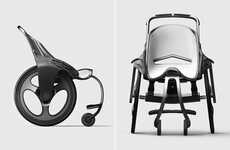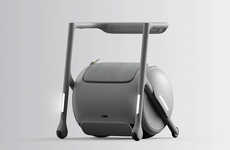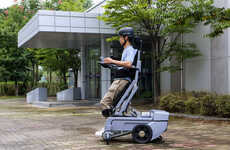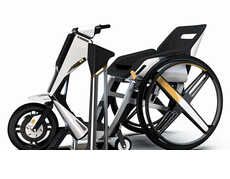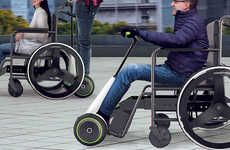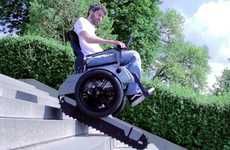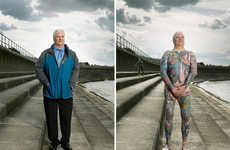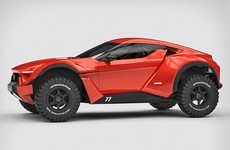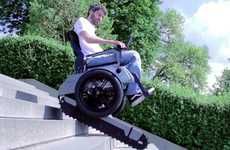
The Optimo Reconfigures for Its User to Change Position
Amelia Roblin — March 17, 2015 — Autos
References: yankodesign
There are so many wonderful things about the design of this conceptual convertible wheelchair, all involving its capacity to be modified. Unlike the conventional assistive seat on wheels, this one doesn't keep its user bound to a seated position, but rather supports him or her with the option of standing or resting low with legs outstretched.
The Optimo wheelchair gives people with some physical disabilities the aid necessary for having conversations at even eye level and reaching for objects placed at some height. The inclusion of a joystick type of control makes it easy to modify the arrangement of the hinged seat in relation to the floor. To give the owner more freedom still, the designer has proposed an associated compact car in which his convertible wheelchair becomes the driver's seat. It's about time the electric wheelchair gets a revamp.
The Optimo wheelchair gives people with some physical disabilities the aid necessary for having conversations at even eye level and reaching for objects placed at some height. The inclusion of a joystick type of control makes it easy to modify the arrangement of the hinged seat in relation to the floor. To give the owner more freedom still, the designer has proposed an associated compact car in which his convertible wheelchair becomes the driver's seat. It's about time the electric wheelchair gets a revamp.
Trend Themes
1. Convertible Wheelchairs - Designing wheelchairs with convertible features that allow users to change positions for different social interactions or accessibility needs.
2. Standing Wheelchairs - Manufacturing wheelchairs that give users the option to move from a seated to a standing position for added mobility and accessibility.
3. Compact Car-wheelchair Integration - Integrating wheelchairs with compact cars to increase owner's freedom and mobility as well as solving the problem of transportation and accessibility for people with disabilities.
Industry Implications
1. Medical Devices Industry - Manufacturing companies specializing in designing and creating innovative, convertible and more functional electric wheelchairs can tap into a growing market demand for mobility technology that addresses the specific needs of people with disabilities.
2. Automotive Industry - Automakers can develop more accessible and convenient compact cars designed to integrate with wheelchairs, thus providing a solution to the problem of transportation and mobility for people who use wheelchairs.
3. Technology and Design Industry - Technology and design companies should innovate solutions to create more versatile and functional assistive seating options for people with disabilities, adapting them to their everyday needs and providing them with more independence and accessibility.
6.6
Score
Popularity
Activity
Freshness

